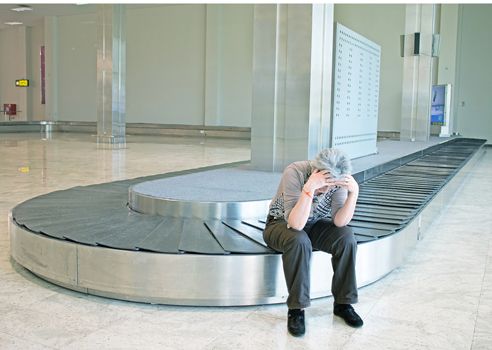Reading time: Just over 1 minute
Increase your vocabulary and you’ll make your writing much more precise. That’s why I provide a word of the week. Today’s word: forfend…
I don’t think I had ever encountered the word forfend before reading a delightfully snarky Gail Collins column in the May 26/16 New York Times. Under the headline “I Have Met the Enemy, and It Is the Airlines” she writes about the execrable practice of charging a $25 fee for checked baggage. Collins not only taught me a new word, she also gave me a new reason to dislike airlines.
I had never reflected, for example, that of course taxpayers would be the ones paying for security checks. Given that the airlines are now making money hand over fist, and that the cost of fuel has dropped precipitously, why are we still paying for checked bags? And why should airlines be asking for more security staff?
As a traveller, I always prefer to travel with carry-on luggage. I even managed to do this during a four-week trip to Italy last fall. But it’s tricky to travel with carry-on these days because so many other people are doing it and there’s only a limited amount of space. If I had my way, I’d happily pay $25 fee for travelling with carry-on — and let the checked bags go for free — because that would reduce people trying to jam their cases in the overhead compartment.
In any case, here’s how Collins used the word forfend:
Heaven forfend we mess with the business model.
From context, I could guess the word meant “forbid,” and indeed that’s close enough. It means to protect (something) by using precautionary measures. But it carries a delightfully archaic tone, perfect for the context of complaining about bureaucracy. Etymologically speaking, the word is a a hybrid from the Old English for and the Mid-English fend, meaning “to ward off.”
Thanks to my friend Ann Giardini for bringing this delightful word to my attention in a tweet.

